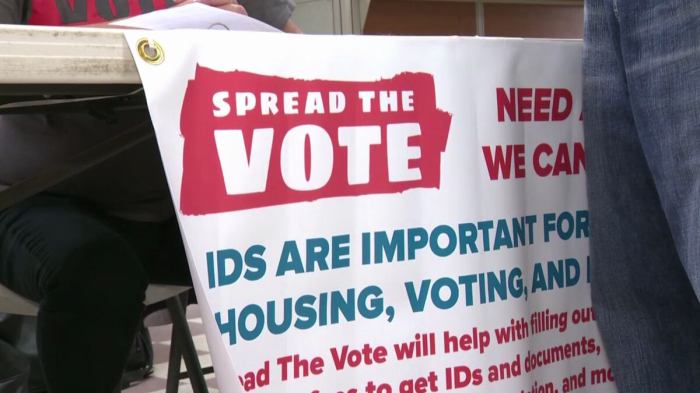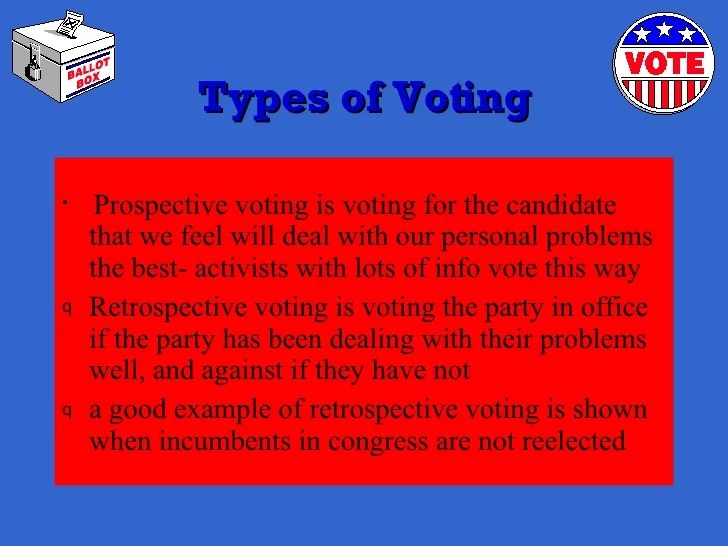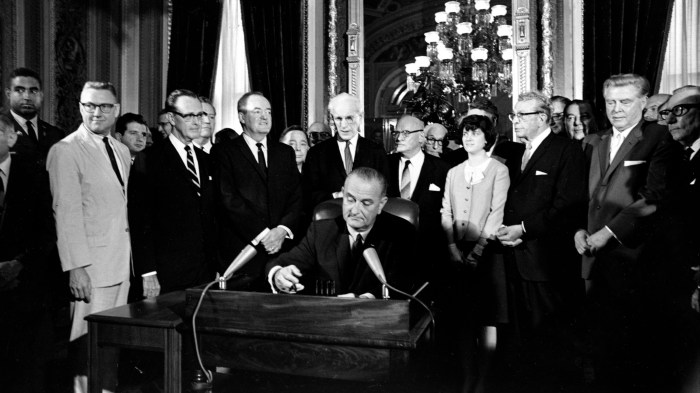Prospective voting definition ap gov, a compelling concept in the realm of electoral systems, offers a unique perspective on voter behavior and election outcomes. This comprehensive exploration delves into the intricacies of prospective voting, tracing its historical origins, categorizing its diverse types, and analyzing its profound impact on the electoral landscape.
Prospective voting definition ap gov, in its essence, empowers voters to cast their ballots based on anticipated future outcomes rather than solely on current preferences. This intriguing approach has sparked considerable debate, with proponents extolling its virtues and detractors raising concerns about its potential pitfalls.
Definition of Prospective Voting

Prospective voting is a system of voting in which voters cast their ballots for candidates who they believe will make the best decisions in the future. This is in contrast to retrospective voting, in which voters cast their ballots based on the candidates’ past performance.
History of Prospective Voting: Prospective Voting Definition Ap Gov

The concept of prospective voting has been around for centuries. In the early days of democracy, voters often cast their ballots for candidates who they believed would protect their interests. As time went on, however, retrospective voting became more common.
This was due in part to the rise of political parties, which made it easier for voters to identify candidates who shared their views.
Types of Prospective Voting, Prospective voting definition ap gov
There are many different types of prospective voting. Some of the most common include:
- Ranked-choice voting:In this system, voters rank the candidates in order of preference. The candidate with the most first-place votes wins the election.
- Approval voting:In this system, voters can vote for as many candidates as they like. The candidate with the most votes wins the election.
- Score voting:In this system, voters give each candidate a score from 0 to 10. The candidate with the highest average score wins the election.
Impact of Prospective Voting on Elections

Prospective voting can have a significant impact on elections. In general, prospective voting systems tend to favor candidates who are seen as moderate and electable. This is because voters are more likely to vote for candidates who they believe will be able to win the election and make the best decisions for the future.
Legal and Ethical Considerations
There are a number of legal and ethical considerations that must be taken into account when designing a prospective voting system. One of the most important considerations is the potential for fraud or manipulation. It is important to ensure that the system is designed in such a way that it is difficult for voters to cast fraudulent ballots or manipulate the outcome of the election.
Q&A
What is the key difference between prospective and retrospective voting?
Prospective voting focuses on anticipated future outcomes, while retrospective voting considers past performance.
Can prospective voting lead to strategic voting?
Yes, voters may strategically cast ballots to influence future outcomes, potentially undermining the system’s intended purpose.
What are the potential ethical concerns associated with prospective voting?
Prospective voting raises concerns about voter manipulation, fraud, and the potential for unfair advantages for certain candidates or parties.